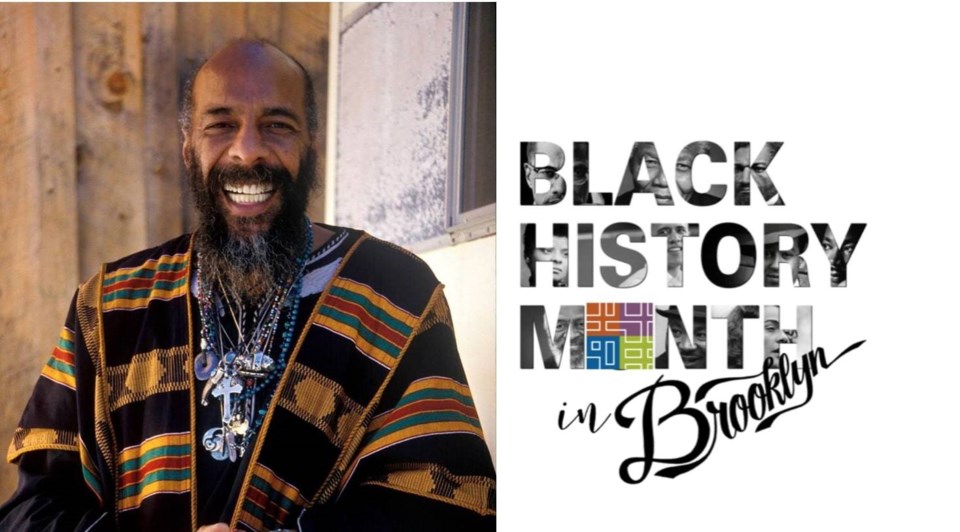Richard P. "Richie" Havens was born January 21, 1941, in Bedford Stuyvesant. At an early age, he began organizing his neighborhood friends into street corner doo-wop groups and was performing with The McCrea Gospel Singers at 16. At the age of 20, Havens left Brooklyn to seek out the artistic stimulation of Greenwich Village.
"I saw the Village as a place to escape to in order to express yourself," he recalled. "I had first gone there during the beatnik days of the 1950s to perform poetry, then I drew portraits for two years and stayed up all night listening to folk music in the clubs. It took a while before I thought of picking up a guitar."
Havens's reputation as a solo performer soon spread beyond the Village folk circles.
After cutting two discs for Douglas Records, Havens signed on with manager Albert Grossman and landed a record deal with the Verve Forecast label. Verve released "Mixed Bag" in 1967, which featured tracks like "Handsome Johnny," co-written by Havens and future Oscar-winning actor Louis Gossett Jr., "Follow," and a cover of Bob Dylan's "Just Like A Woman." By 1969, he had released five more albums. "Something Else Again" (1968) became Havens's first album to hit the Billboard chart and also pulled Mixed Bag back onto the charts.
But it was Havens's reputation as a live performer that first earned him widespread notice. His Woodstock appearance proved to be a major turning point in his career. As the festival's first performer, he held the crowd for nearly three hours — in part because he was told to perform a lengthy set because many artists were delayed in reaching the festival location — and was called back for several encores.
Having run out of tunes, he improvised a song based on the old spiritual "Motherless Child" that became "Freedom." The subsequent Woodstock movie release helped Havens reach a worldwide audience of millions.
Memorable television appearances included performances on two now-legendary programs, the Ed Sullivan Show and The Tonight Show Starring Johnny Carson. On the latter program, the audience reacted with such enthusiasm that when the applause continued even after the commercial break, Johnny Carson invited Havens back the next night. In the show's long history, the only other guest booked back-to-back nights based on overwhelming audience response was Barbara Streisand.
Increasingly, Havens devoted his energies to educating young people about ecological issues. In the mid-1970s, he co-founded the Northwind Undersea Institute, an oceanographic children's museum on City Island in the Bronx.
That, in turn, led to the creation of The Natural Guard, an organization Havens describes as "a way of helping kids learn that they can have a hands-on role in affecting the environment." Children study the land, water and air in their own communities and see how they can make positive changes from something as simple as planting a garden in an abandoned lot.
In 2003, The National Music Council awarded Havens the American Eagle Award for his place as part of America's musical heritage, and for providing "a rare and inspiring voice of eloquence, integrity and social responsibility."
For more than four decades, Richie Havens used his music to convey messages of brotherhood and personal freedom.
"I really sing songs that move me," said Havens. "I'm not in show business, I'm in the communications business. That's what it's about for me."
In March 2012, he announced that he would retire from touring after 45 years, due to health issues. On April 22, 2013, Havens died of a heart attack at home in Jersey City, New Jersey, at the age of 72.
Richie Havens, we acknowledge your artistry and honor your contributions.
*Sources: www.richiehavens.com, patch.com




